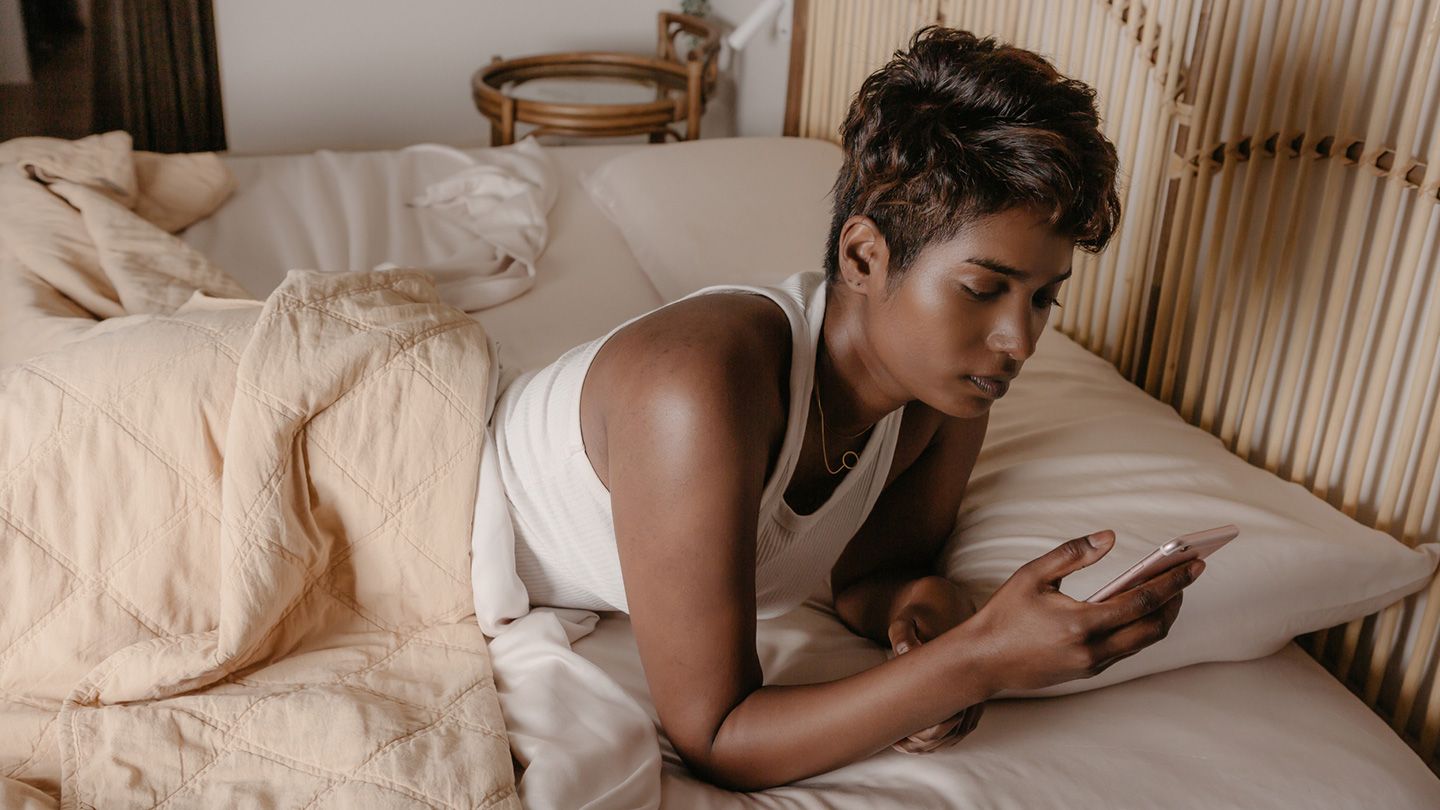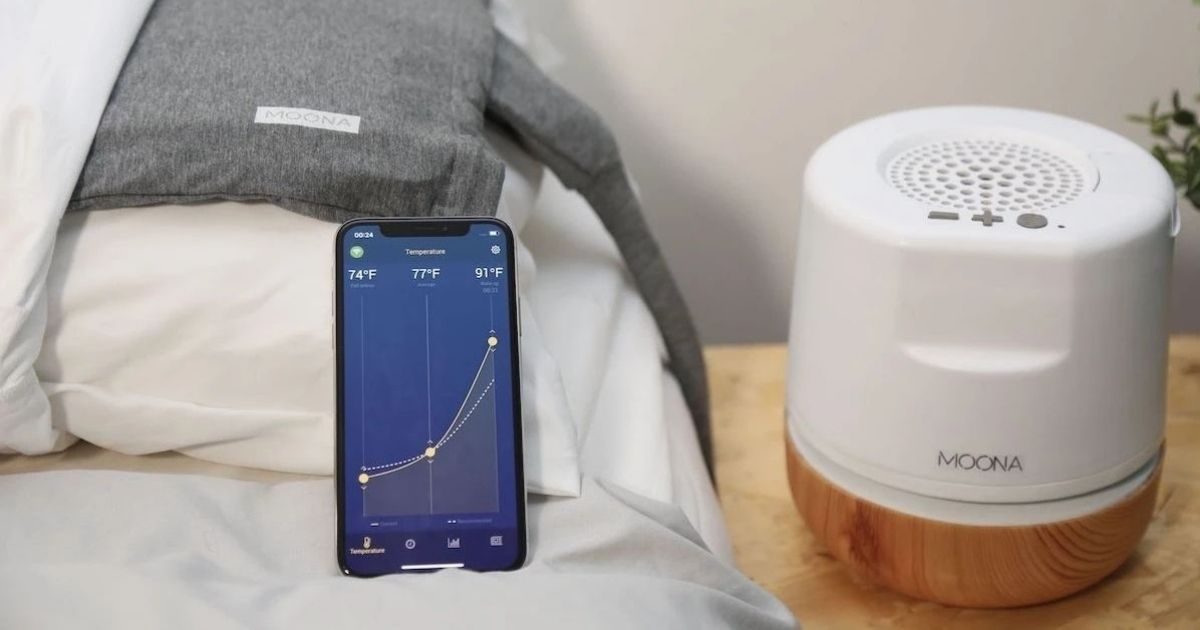If you‘re suffering from disrupted sleep patterns, it’s time to learn how to change your sleep habits.
The quality of your sleep hygiene comes down to your sleep habits. Are you keeping a consistent bedtime and gearing your bedroom up for peaceful rest? Or are you only getting a few hours of sleep and playing on your phone in bed?
If you want to avoid sleep deprivation and get better sleep at night, follow these simple tips to improve your bedtime habits.
(Note. While we earn commission from the links in this article, we only recommend the products we truly believe will improve your sleep the most. These commissions come at no extra expense to you and help us to keep providing you with expert sleep information for free.)
Why Do Your Sleep Habits Matter?
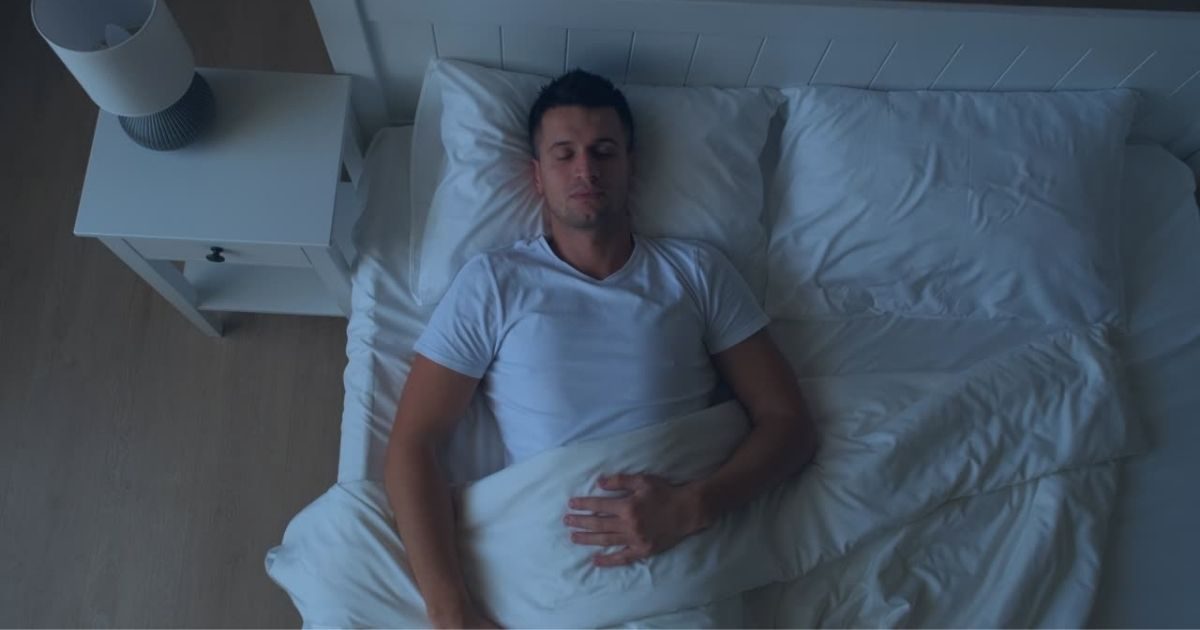
Your sleep health is vital to your personal health. Poor quality sleep leads to a whole plethora of health conditions, both mental and physical.
In terms of your mental health, sleep issues make stress worse and lead to more negative emotions during waking hours. Chronic stress leads to bad psychological well-being across the population.
On the flip-side, healthy sleep habits can improve your cognitive performance, leading to better work and study.
As far as your physical health goes, if you don’t get adequate sleep, you’re at risk of a whole myriad of physical issues, such as IBS and obesity.
Good sleepers, however, experience more physical power. This is why athletes need 10-12 hours of sleep per night, whereas the general population only needs 6-8 hours.
If you find that you can’t get to sleep at a reasonable time, you’ll struggle to get 6-8 hours of sleep. For coffee lovers and energy beverage drinkers, these caffeinated drinks may be the problem. Try swapping out your daily coffee for MUD/WTR, a delicious caffeine-free alternative.
How to Change Your Sleep Habits: 11 Tips
Poor sleep habits impact your physical and mental health, making each day harder than the last. To improve your sleep habits, try these 11 simple steps.
1. Embrace the darkness
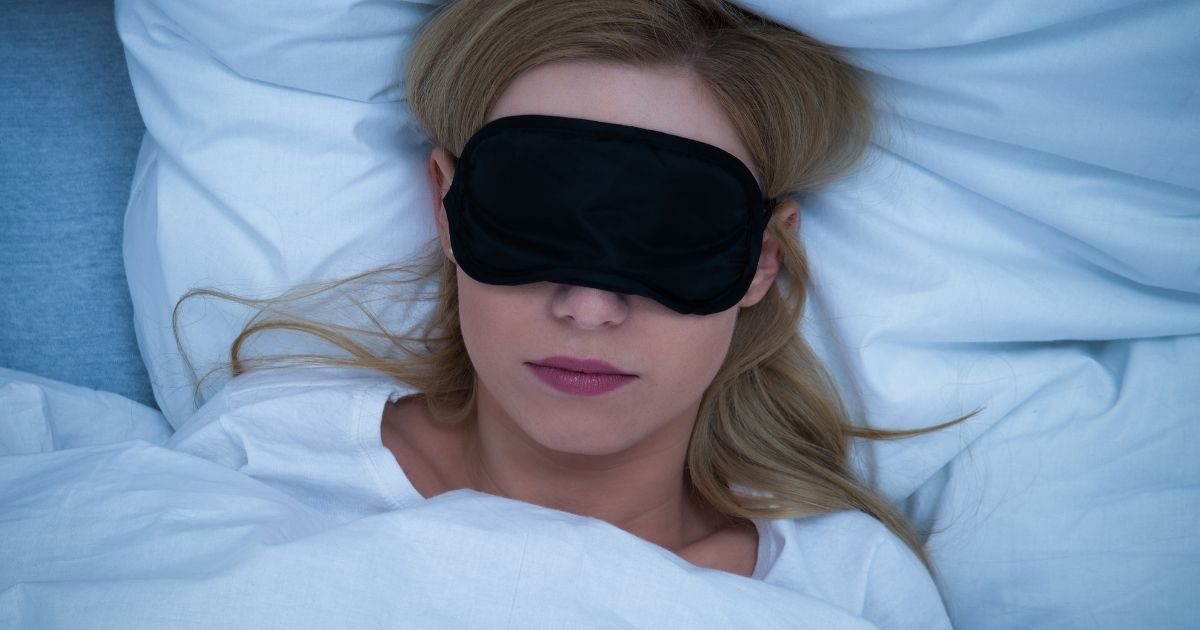
Melatonin is the hormone that causes you to feel sleepy and helps you to regulate your internal clock. Melatonin production is extremely sensitive to light. Even the slightest slither of light through the curtains can stop melatonin from being produced, waking you up.
Since light is such a key factor in the production of this sleep hormone, it’s important to cut out bright light late at night and reduce your exposure to light into the evening. This is especially true for blue light.
For improved sleep, make sure you create a sleeping environment that embraces the absence of light. Restless nights are often caused by thin curtains and lights from electronics interrupting your darkness. Make sure that’s when it’s time for sleep, you turn off these lights, no matter how small they are.
This simple behavior can have a huge impact in helping your body clock to balance out so you can drift off more easily.
2. Limit caffeine afternoon
Everyone knows that coffee keeps you awake, however, few people realize that the effects of caffeine have an impact on the body for many hours after consumption.
Not only should you try to limit caffeinated drinks in the hours before bedtime, but you should also try to cut these beverages out after midday. This includes coffee, certain teas, and energy drinks.
If you’re looking to supplement your caffeine kick altogether, try MUD/WTR. Alternatively, check out our extensive list of morning coffee alternatives.
3. Wake up naturally

While you may need to wake up at a certain time each day, your alarm clock is a rather jarring tool. Instead of being startled awake, research suggests that you should wake yourself up slowly with dawn simulation.
Dawn simulation alarm clocks simulate the slow rise of the sun using light. Studies show that you’ll be more alert and suffer from less morning tiredness if you use a dawn simulation alarm clock at wake-up time rather than a loud buzzer.
A good dawn simulation alarm clock not only makes for a more peaceful wake-up time, but it also measures your sleep patterns so you only spend the right amount of time in bed, triggering the alarm to start when it’s most healthy for you to wake up.
4. Cut out naps

While it is important to get enough sleep, anyone with a baby knows that naps that are too long or too often, prevent sleep later in the night.
If you incorporate nap time into your normal routines but you’re finding it hard to sleep at night, it’s time to cut out the snoozes. After all, naps aren’t always considered healthy and may lead to a harder time falling asleep and staying asleep later.
5. Keep a strict sleep schedule

One of the worst habits that can shake up your body clock and damage your nightly sleep cycle is having an inconsistent bedtime routine.
Studies show that inconsistent sleep schedules harm your subjective sleep quality. In other words, if you’re going to bed at 9pm one night and 1am the next and you don’t have a normal sleep routine, you’ll experience poor sleep.
Keeping a consistent sleep schedule and a healthy sleep routine trains the body when to release melatonin so you start to feel tired at the same time every night.
One way to get into the hang of this is to build a consistent bedtime routine that you follow each night. Perhaps you wind down by dimming the lights, taking a warm bath, and reading a book. This sleep routine begins to act as the cues that tell your brain and body it’s time to sleep.
6. Turn off screens in the evening

Blue light emitted from your cell phone, TVs, laptops, tablets, and other electronic devices keep you awake. This is because blue light exposure in the hours before bedtime suppresses melatonin production. Not only does this make it harder to fall asleep, but it can also result in poor quality sleep.
To avoid this common sleep issue, try cutting back on smartphone and TV usage in the evening. Instead of watching Netflix to wind down, try quiet activities that don’t involve blue light, like reading a book or listening to an audiobook.
In fact, studies show that keeping smartphones out of your bedroom can increase your happiness and quality of life.
If you’re wondering how to cut back on blue light in the evening, follow our guide here: How to Block Blue Light.
If you absolutely must use blue light-emitting devices, try Prospek Blue Light Glasses.
7. Eat a better diet

The facts are plain to see: people who are overweight more commonly report sleep issues. Not just that, but studies show that diet is one of the major contributors to poor sleep.
In this respect, if you want high-quality sleep, it’s important to consider your diet and physical health. Not only should you try to avoid being overweight, but you should also look at the snacks you choose to consume before bed.
Try to avoid having big meals late at night as this forces the body to work hard to digest them. This is why people say that cheese gives your nightmares — cheese is hard to digest, forcing bad sleep.
Sleep specialists also advise cutting out sugary foods late at night as they stimulate the brain, making it tough to relax and drift off.
If you are hungry in the hours before bed or fancy a snack while you read your bedtime story, try these sleep-friendly bedtime snacks instead.
8. Exercise regularly

Regular exercise has a highly positive effect on sleep. That’s why those engaging in daily exercise tend to boast that they get sound sleep every night.
It’s not just that physical activity tires out the body, it also releases endorphins which help to relax the brain, curbing anxiety and stress before bedtime.
If you’re thinking of upping your activity levels to help your sleep, studies show that aerobic activity three times a week is most effective for people with sleep conditions.
If aerobic exercise doesn’t feel like the right exercise for you, check out our guide to the top exercises for better sleep.
9. Wear good pajamas
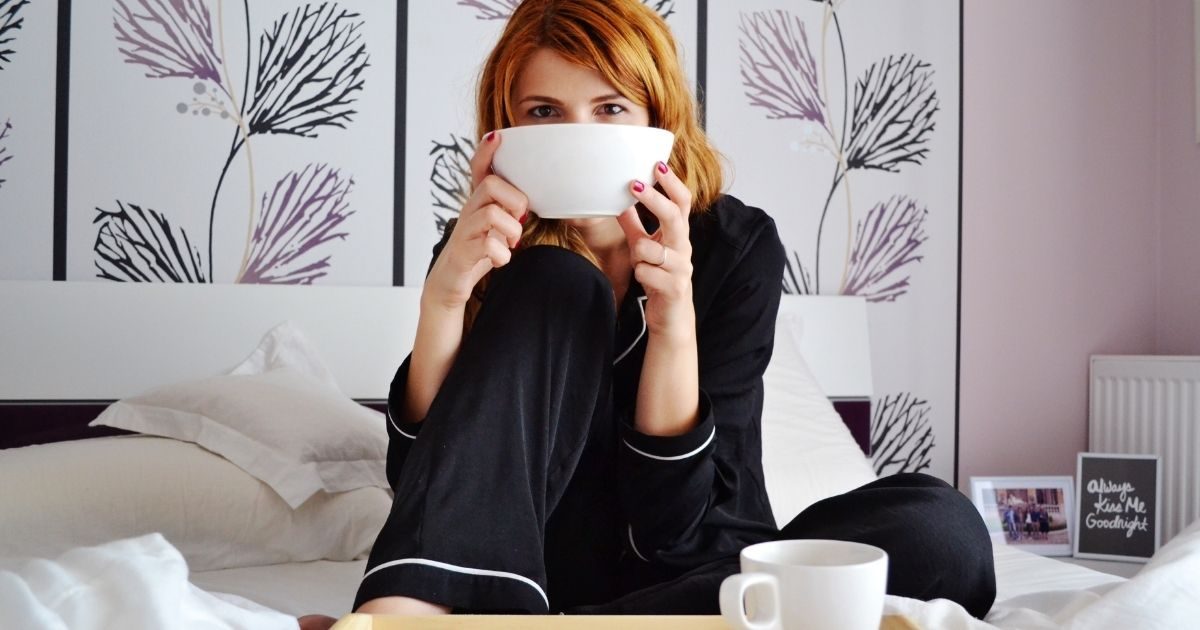
Light isn’t the only thing that affects sleep — the temperature is super important too.
When your body prepares itself for sleep, your temperature drops which signal to the body that it’s time to release melatonin. If your body temperature stays high, the body won’t release this vital sleep hormone.
Herein lies the problem of low-quality sleepwear. Pajamas made from synthetic fibers don’t allow breathability, leading to poor temperature control. Synthetic fabrics trap air, preventing air flow, increasing body temperature, and encouraging sweating.
Conversely, natural fibers, such as cotton, silk, wool, and bamboo, are porous. This means they’re more breathable so you’re not getting too hot. Plus the moisture-wicking helps to absorb sweat and enable ventilation.
If you’re suffering from sleep troubles and you’re wearing pajamas made from synthetic fabrics, make it a habit to wear natural fibers instead.
10. Turn down the noise
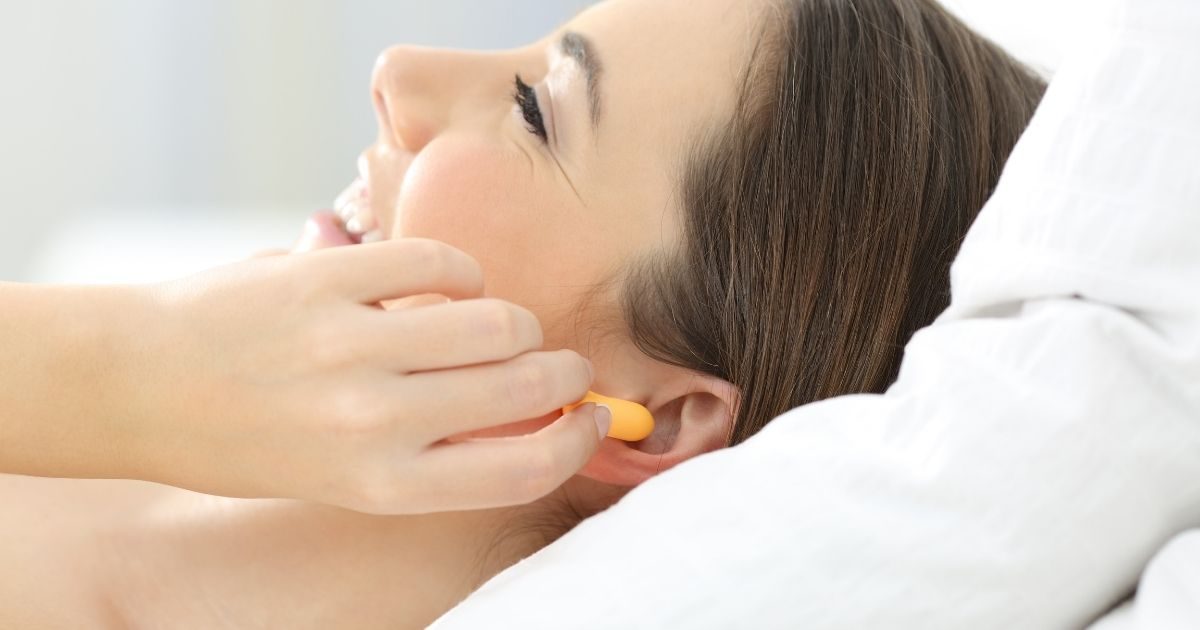
Your sleep difficulty could also be attributed to the noise levels in your home and neighborhood. As science shows, noise has a negative impact on your sleep, which is why it’s so important to keep your bedroom quiet.
What’s worse is that continuous sleep disturbances from noise can interrupt your circadian clock, resulting in mental and physical problems.
If you live in a noisy house, make it a habit to pop in earplugs at night or to switch on a white noise machine, such as the Dohm Uno Noise Machine. White noise helps to calm the mind as well as blocking out external sounds.
Alternatively, you can block out the noise by wearing bedphones by Moonbow and playing a bedtime story podcast to yourself.
For more tips on getting improved sleep by blocking out noise, check out our guide: How to Block Out Noise.
11. Keep your cool
As mentioned above, you’ll find it tough to sleep if you’re too hot. Not only do you need to make sure you have the right pajamas on, you also need a comfortable sleep environment.
Temperature is one of the most important external factors that affect your sleep. When considering a comfortable temperature for nighttime, sleep psychologist Michelle Drerup suggests:
“The temperature in the bedroom for adults should be between 60 and 67 degrees Fahrenheit for optimal sleep. Your body temperature decreases as part of the sleep initiation process, and this range of temperature is thought to actually help facilitate this decrease.”
If you don’t have air conditioning and you’d like to cool yourself down in bed, try investing in the Moona Active Cooling Pillow Pad.
Conclusion
Now you know how to change your sleep habits, you’ll have a better chance of getting a quality night’s sleep.
Remember, caffeine and blue light are stimulants that keep you awake. Try to curb the use of these before bedtime.
In fact, try cutting out coffee altogether with a coffee substitute such as MUD/WTR.

Welcome to Snoozerville! I’m Dr. Alex Hartley, your guide to the world of restful sleep. With a Ph.D. in Sleep Science and years of experience as a sleep therapist, I’ve dedicated my life to understanding and improving sleep quality. My passion lies in uncovering the mysteries of sleep and sharing practical, science-backed advice to help you achieve the best rest possible. Beyond my academic pursuits, I’m an advocate for mindfulness and relaxation techniques, which I incorporate into my daily routine. At Snoozerville, I aim to transform your nights, combining the latest research with easy-to-implement tips. Whether you’re a chronic insomniac or just looking to improve your sleep hygiene, join me on this journey towards peaceful, rejuvenating sleep.

